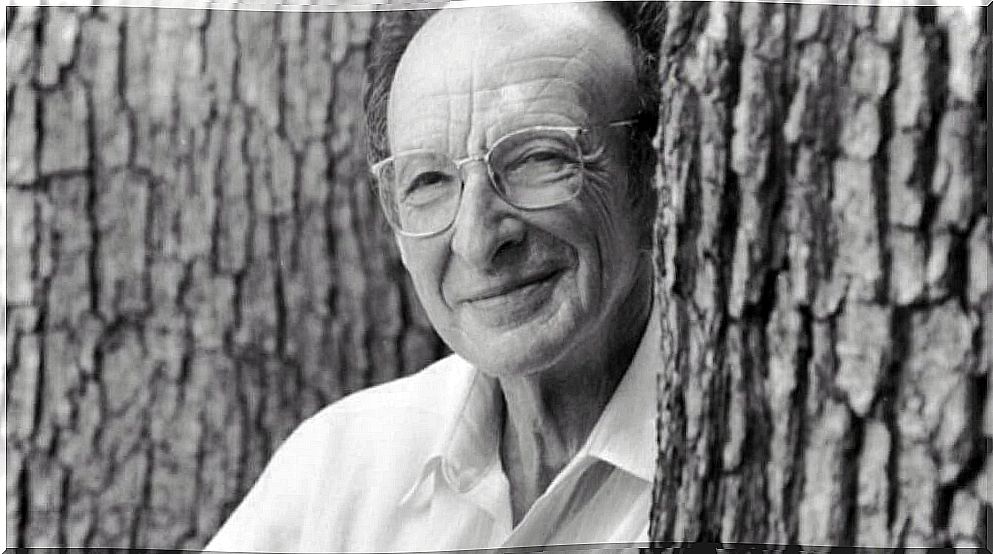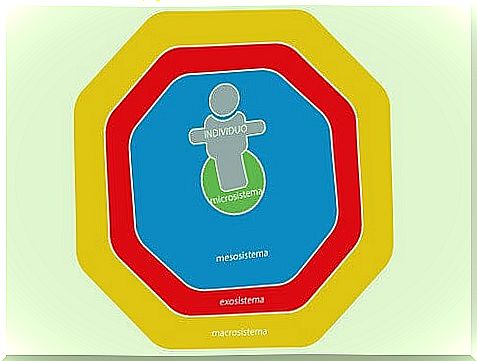The Developmental Psychology Of Urie Bronfenbrenner

Urie Bronfenbrenner was a psychologist of Russian origin, nationalized in the United States, who made decisive contributions to the theory of child development. He proposed an ecological approach to the evolution of the individual, giving the environmental systems a decisive role in the construction of the subject.
His is considered one of the most important emerging theories in evolutionary psychology. It suggests that the changes in the life of an individual occur, fundamentally, by the influence of the environment. This is multidirectional, that is, with different effects depending on the culture. Also multicontextual and multicultural, that is, with incidence and interaction between various contexts and cultures.
Throughout his life, Urie Bronfenbrenner received several awards for his work. He was also the co-founder of an interesting program in the United States, called Head Start, which is aimed at preschool children with cognitive disabilities and older adults.
The life of Urie Bronfenbrenner
Urie Bronfenbrenner was born in Moscow (Russia and the former Soviet Union) in 1917. At a very young age, his family moved to the United States, where Bronfenbrenner lived until his death in 2005. His father was a doctor and became the director of the New York Institute for the Mentally Handicapped.

Urie Bronfenbrenner studied psychology and music at Cornell University and graduated in 1938. He then studied developmental psychology at Harvard University and obtained a doctorate in this area from the University of Michigan in 1942.
When the Second World War broke out, he worked as a psychologist in the ranks of the American armed forces. This experience had a profound impact on him and gave him important foundations for the theory that he later developed.
After the war, Urie Bronfenbrenner devoted himself to teaching and research in various university centers. From his chair and throughout his life he worried that his theories had a practical translation in the lives of most people. For this reason, he actively participated in the design of programs to be applied with young children and underprivileged sectors of society.
Urie Bronfenbrenner’s theory
Urie Bronfenbrenner’s approaches are generically known as ecological systems theory. It points out that different environments decisively influence the cognitive, moral and relational development of every individual. It postulates that there are four systems that surround the subject and shape their behavior.

These systems are:
- Microsystem. It is the basic nucleus where the individual develops. Understand the family and the school, or whatever it does.
- Mesosystem. Understand the links that microsystems establish with each other. For example, the relationship between family and school, or between teachers and their families, etc.
- Exosystem. It refers to those contexts that influence microsystems. For example, the work of the parents, the relationship of the school with the place where it is installed, etc.
- Macrosystem. They are the structural conditions. For example, culture, institutions, state policies, etc.
Urie Bronfenbrenner also refers to the ontosystem or biological and genetic characteristics of each individual. To the chronosystem or effect of historical time. And to the globesystem or the incidence of great natural phenomena such as climate change, etc.
The contributions of Urie Bronfenbrenner
Based on this scheme of mutual influence between multiple contexts, Urie Bronfenbrenner stated that different events in the world affect and modify the individual. He argued that, for example, the Syrian war had the potential to alter someone’s emotional state, even if it did not suffer its effects directly.
The main criticism that has been made of Urie Bronfenbrenner’s theories comes from cognitive-behavioral currents. They point out that it does not give enough importance to biological and cognitive factors in the development of the individual. They also question the fact that it has not raised a succession of phases or stages in the evolutionary development of people.

Despite the questions, the truth is that Urie Bronfenbrenner’s theory has become a benchmark in evolutionary psychology. It is very valuable that you have shown and emphasized the influence of environments on people. Although, obviously, he was not the first to do so, he did manage to give shape and coherence to these incidents, beyond a general approach.









